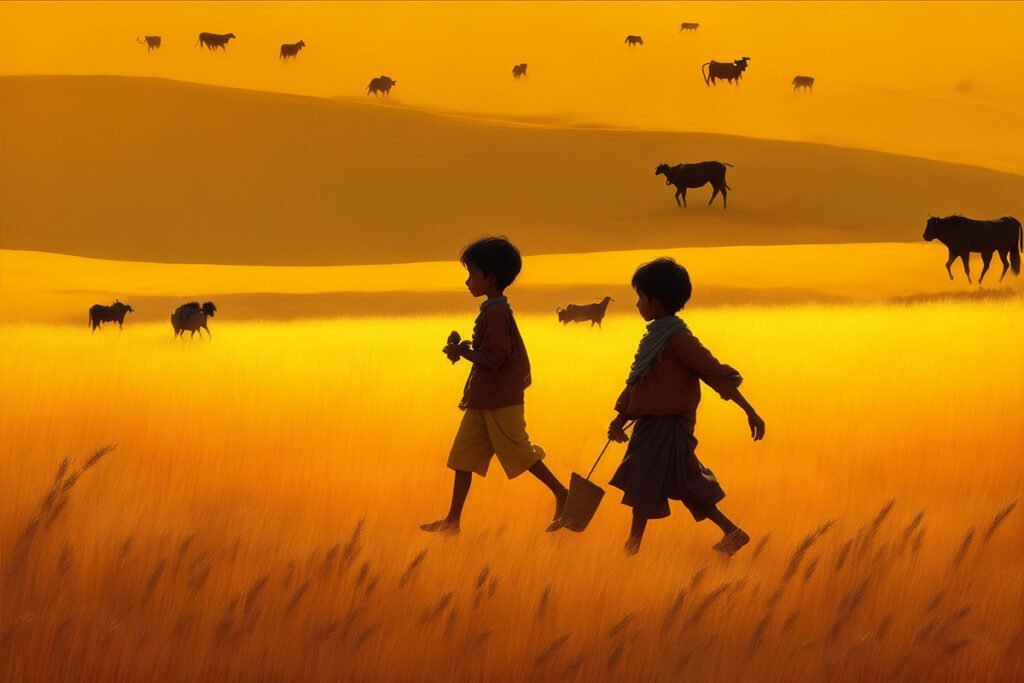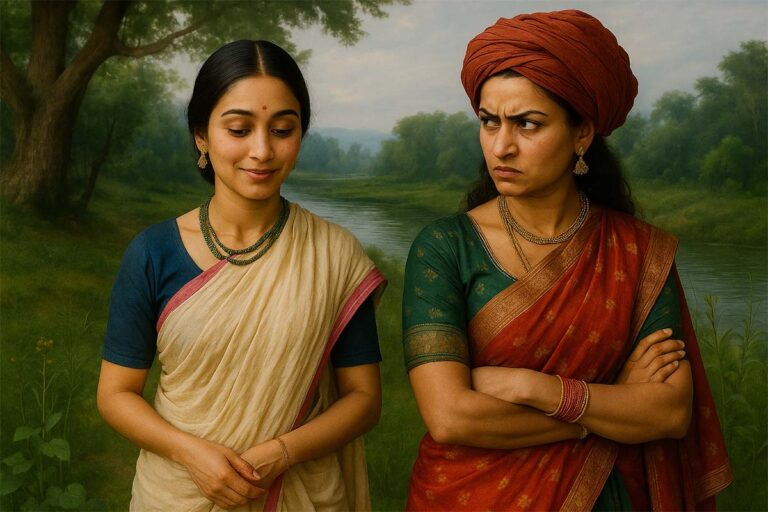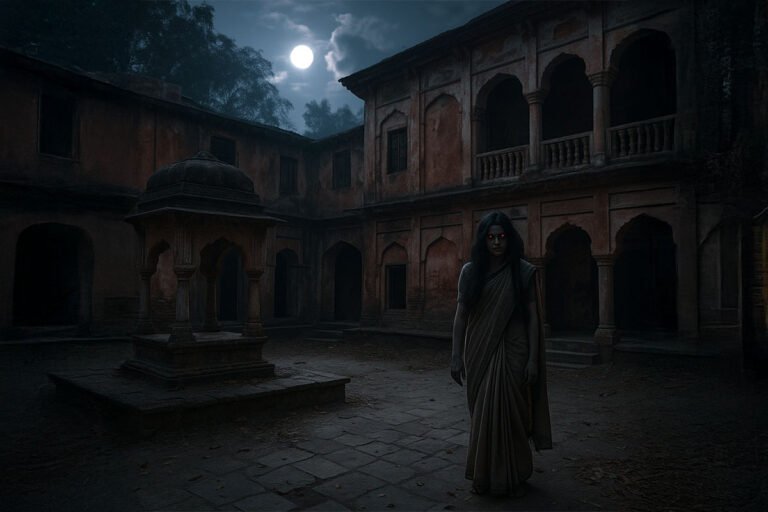Once upon a time in a quaint little village in Odisha, there lived a young Kshatriya named Kapila. Orphaned at a young age, he found work tending cattle for a wealthy man. This man had a son named Kasia, and as destiny would have it, the two boys of the same age became fast friends. Their bond grew stronger with each passing day as they frolicked in the fields, watched over cattle, and shared their dreams.
A Fateful Day Under a Scorching Sun
One sweltering afternoon, the fierce heat and the relentless winds of the field were unbearable for Kapila.
“Kasia, my friend,” Kapila said, exhausted, “I can’t keep my eyes open any longer. I’ll rest beneath this tree. Keep an eye on the cattle while I catch a short nap.”
Kasia nodded, his eyes heavy with concern. Kapila drifted into slumber beneath the tree while Kasia wandered off to tend to the cattle. But, as Kapila slept, something extraordinary happened—a cobra slithered out from the nearby bushes. It spread its hood over Kapila’s face, shielding him from the harsh rays of the sun.
When Kasia came to wake his friend, he gasped at the sight. Trembling with both awe and fear, he watched as the cobra sensed his presence and silently retreated into the forest. Roused from his sleep, Kapila listened in amazement as Kasia recounted the surreal event.
The Omen that Lit Up the Village
The story ignited the village gossip like dry kindling. Wise elders mused, “Ah, this is auspicious, an omen of royalty! Kapila is destined to be a king. Snakes don’t just offer shade to anyone!” The village was abuzz with the prophecy, and soon enough, Kapila himself started to question his destiny.
“Will you forget me when you’re king?” Kasia once asked, half-joking but also half-serious.
Kapila, with a glint in his eye, swore, “Never! You’ll be right there with me, as my minister!”
The Turn of Fortune’s Wheel
As time passed, Kapila grew restless and eventually set off for Puri, a city of temples and pilgrims. His life took a dramatic turn when King Bhanudeva of Odisha noticed him. Struck by Kapila’s bearing and poise, the king offered him work in the palace.
In no time, Kapila was not just a servant but an adopted son. He was educated, trained in warfare, and ascended to the rank of army captain. When the old king was on his deathbed, he anointed Kapila as his successor. Thus, Kapila became King Kapilendra Deva, fulfilling the strange prophecy foreseen by his village.
The Test of True Friendship
But what of Kasia? He heard about his friend’s extraordinary rise to power and decided to seek him out. Yet, the doors of the palace were not easily opened for a humble cowherd. Repeatedly turned away by the guards, Kasia grew desperate.
“I must see the King by any means,” Kasia thought.
In the cover of night, he scaled the palace walls but was promptly caught. The next morning, he was dragged before King Kapilendra.
“What have you to say for yourself, you audacious thief?” the King roared, not recognizing Kasia.
With hope glimmering in his eyes, Kasia replied, “Oh King, have you forgotten the day a cobra lent you its hood as a parasol? I am that friend, Kasia.”
Kapila’s face broke into a smile of realization and joy. Descending from his throne, he embraced Kasia and said, “Ah, how could I ever forget?”
True to his word, Kapila appointed Kasia as his chief adviser and minister, solidifying a friendship that had once been forged under the most unusual circumstances and had now stood the test of destiny itself.
And so, the two friends from the humble village lived their lives in the grandeur of the palace, their friendship unbroken, their promises kept, and their destinies fulfilled.








